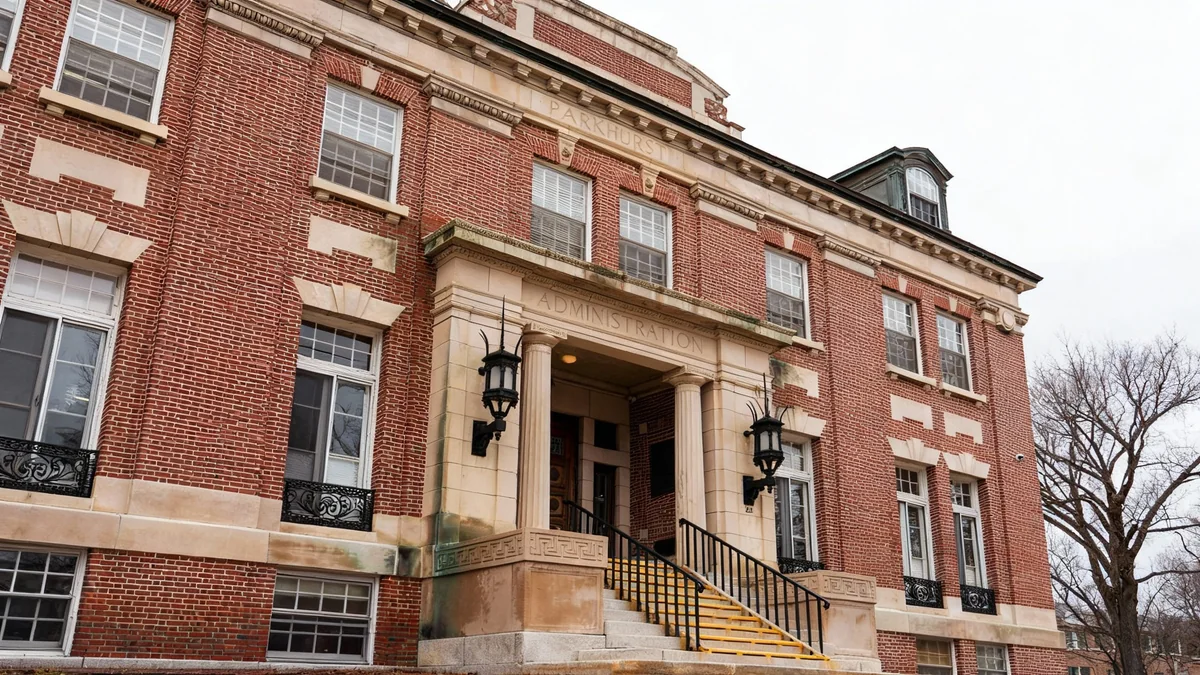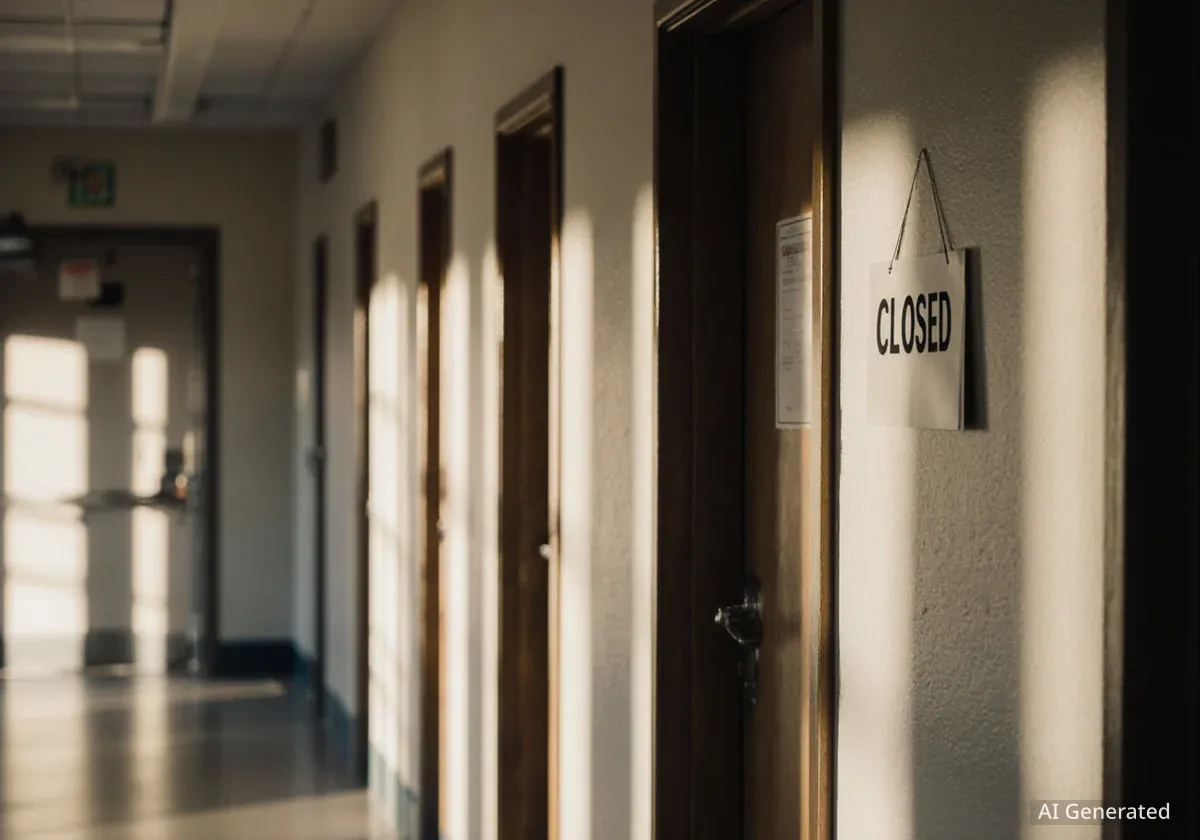Dartmouth College has officially declined to sign a controversial higher education compact proposed by the Trump administration, a decision that followed significant opposition from faculty and students. College President Sian Leah Beilock announced the move, stating that the agreement would undermine the institution's core principles of academic freedom and self-governance.
The compact, which was sent to nine universities, offered privileged access to federal research funding in exchange for major policy changes. These included capping the number of international students, freezing tuition, and altering admissions criteria to exclude considerations of race, religion, and gender identity.
Key Takeaways
- Dartmouth College President Sian Leah Beilock formally rejected the Trump administration's higher education compact.
- The decision was heavily influenced by a faculty petition that gathered over 500 signatures, opposing the proposal on grounds of academic freedom.
- The compact required universities to freeze tuition, limit international students, and redefine gender in a way that excludes non-binary and transgender individuals.
- Students and faculty have largely praised the decision, while some conservative voices on campus expressed support for the compact's goals.
A Stand on Principle
In a campus-wide email, President Beilock explained that signing the compact “would compromise our academic freedom, our ability to govern ourselves and the principle that federal research funds should be awarded to the best, most promising ideas.” This statement directly addressed concerns raised by a large portion of the college's faculty.
Just days before the official rejection, a petition urging the administration to refuse the compact circulated among Dartmouth faculty, ultimately securing 529 signatures. The petition argued that the agreement would damage the college's autonomy and its commitment to scholarly independence.
A Broader Trend in Higher Education
Dartmouth is not alone in its decision. The college is the sixth of the nine universities initially approached to reject the proposal. Other Ivy League institutions, including Brown University and the University of Pennsylvania, have also declined to sign. As of now, only Vanderbilt University and the University of Texas at Austin have not publicly rejected the compact.
Widespread Faculty and Student Support
The administration's decision has been met with strong approval from many within the Dartmouth community. Faculty members who had opposed the compact view the rejection as a victory for the institution's values.
Ellen Rockmore, a writing program lecturer and New Hampshire State Representative, called it a “terrific decision.” She stated that the rejection “sends a message that the top priorities for an institution of higher learning should be scholarship and independence.”
“Input from the faculty and Trustees was sought and incorporated into the response in a thoughtful manner,” said economics professor Bruce Sacerdote, who expressed he was “very pleased” with the outcome.
Students also voiced their relief and support. Many were particularly concerned about the compact's potential impact on diversity and inclusion on campus.
Concerns Over Inclusivity and Academic Integrity
A key provision of the compact required universities to define gender “according to reproductive function and biological processes.” This raised immediate alarms among students and faculty in gender studies programs.
Roan Wade ’25, a student, worried the compact would “institutionalize transphobia.” They explained that the document “eliminates the possibility of gender non-conforming, non-binary and trans students from being able to receive adequate resources and acknowledgment here.” Wade also noted it would threaten the women, gender, and sexuality studies department.
International Student Impact
The proposal to cap the number of international students was another major point of contention. Angela Zhang ’28, an international student from China, described the compact as “part of Trump’s continuous infringement on academic freedom in this country.” She added, “With Dartmouth’s endowment, we are able to resist.”
A Dissenting Viewpoint
Not everyone on campus opposed the compact. Supporters of the proposal pointed to its potential to increase meritocracy and hold federally funded institutions accountable.
Jack Coleman ’26, president of the Dartmouth Conservatives, said he was personally “supportive of efforts to increase meritocracy on campus” and “would have supported President Beilock signing the compact.”
Coleman argued that the federal government has the authority to set conditions for its funding. “The federal government has every right to institute requirements contingent upon receiving federal funds,” he said. “The minute you rely on federal funds is the minute you open yourself up to, at some point down the line, having a requirement put on those funds that you’re not supportive of.”
Future Implications and Community Mobilization
While the immediate issue of the compact is resolved for Dartmouth, some faculty believe this is not the last challenge the institution will face from the administration. History professor Bethany Moreton suggested that the compact is not “the last time we will experience an attempted abuse of power.”
Moreton credited the successful opposition to the rapid and unified response from the campus community.
“What worked this time was fast mobilization by students, faculty, staff [and] alumni. If every single institution of civil society were able to mobilize that degree of refusal, I would sleep a lot better at night.”
The decision by Dartmouth reinforces a growing divide between some of the nation's top universities and the current administration's vision for higher education, setting a precedent for how institutions may navigate future pressures on their academic and operational independence.





